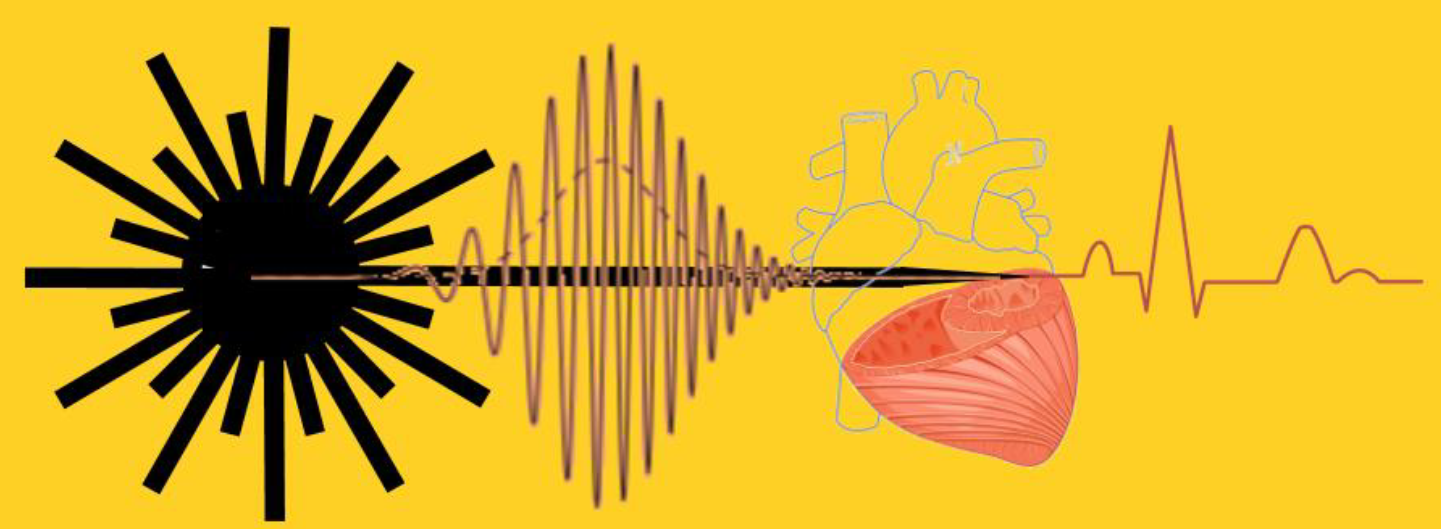Development of novel optical technology to assess electrical activity of hearts

Project Summary
In the heart, function and structure are intricately related, therefore, to understand the formation of arrhythmias, we need to investigate cellular electrophysiology within its native structural environment. Optical methods based on multiphoton microscopy are ideally suited as they are non-invasive and robust to scattering tissue. This project will develop novel optical technology to investigate electrical activity deep within the wall of the heart chamber to unlock cardiac conduction transmurally in health and disease. The NHS highlights that 2 million people are affected by abnormal heartbeats, or arrhythmias, in the UK per year. This project will establish a novel perspective in cardiac electrophysiology by enabling systematic and direct investigations of cardiac excitation waves and develop potentially disruptive technology with wide applicability in the study of a global health issue.
Project Team and where the student will be based
Based in the College of Science and Engineering, in the School of Physics and Astronomy, you will join the group of Dr Caroline Müllenbroich which is focused on novel multi-photon microscopy and applications, with research areas including functional imaging, optogenetic stimulation and advanced microscopy development. Dr Müllenbroich’s research is closely aligned with activities in the Imaging Concepts Group and the Extreme Light group. Prof Faccio, the group leader of Extreme Light, is developing novel quantum imaging approaches, particularly through diffusive materials. His expertise in complex light fields and exotic laser sources will be fundamental for the 3-photon imaging aspects of the PhD project. The candidate will work in close collaboration with Prof Smith, a world-leading expert in cardiac electrophysiology and a strong proponent of exploiting 2-photon microscopy to investigate cardiac excitation wave propagation. The candidate will work across all three research groups to gain a wide range of sills that combine ultra-fast lasers, nonlinear microscopy, cardiac electrophysiology and computational data analysis.
Qualifications/Skill/Experience
Applications are invited for full-time PhD scholarship open to candidates of any nationality - UK, EU and International. This scholarship is awarded on a competitive basis; applicants must, therefore, show high potential. More information on the LKAS scheme can be found here: LKAS scheme
Applicants should demonstrate the following:
Academic Qualifications:
- Applicants must have an upper second- or first-class honours degree or equivalent in an appropriate technical discipline or the expectation of obtaining this by the start of the project. Suitable candidates may come from a diverse range of backgrounds including physics, chemistry, engineering or biology, but a commitment to cross-disciplinary collaborative working is essential
Skills/Attributes:
- Problem-solving skills and research creativity, able to apply own strong academic knowledge to unfamiliar interdisciplinary scenarios
- Self-motivation, initiative and independent thought/working
- Excellent interpersonal skills including team working and a collegiate approach
- Excellent communication skills (oral and written) in an appropriate range of contexts
Enquiries
Enquiries about this project should be directed to Dr Caroline Müllenbroich - caroline.muellenbroich@glasgow.ac.uk.
LKAS PhD Scholarships Application Process

